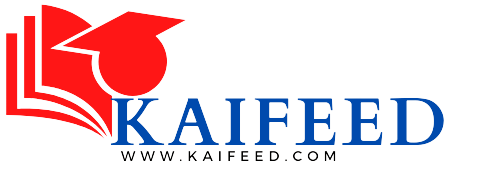1. What does the term "thrust" refer to in teacher movement management?
- A. Assessing student understanding
- B. Proceeding without assessing
- C. Staying on one topic too long
- D. Switching between activities
Answer: B. Proceeding without assessing
Explanation: Thrust happens when a teacher moves on to the next topic without checking if students understand the current one.
2. Describe the concept of "dangling" in a classroom setting.
- A. Completing one activity before moving on
- B. Hanging an activity by giving another
- C. Repeating the same activity
- D. Returning to a previous activity
Answer: B. Hanging an activity by giving another
Explanation: Dangling occurs when a teacher leaves one activity unfinished and starts another, causing confusion.
3. What happens when a teacher engages in "truncation"?
- A. Continues the activity until completion
- B. Ends the activity abruptly
- C. Starts a new topic
- D. Revisits a previous lesson
Answer: B. Ends the activity abruptly
Explanation: Truncation is when a teacher stops an activity suddenly before it’s completed, leading to incomplete learning.
4. Explain the "flip-flop" subcategory of teacher movement.
- A. Continuously starting new activities
- B. Multitasking without focus
- C. Switching back to a left activity while doing another
- D. Completing one task before starting another
Answer: C. Switching back to a left activity while doing another
Explanation: Flip-flop happens when a teacher switches between different activities, which can disrupt the learning process.
5. Define "stimulus-bound" as it pertains to teacher management.
- A. Focused on student needs
- B. Moving on without assessing
- C. Easily distracted by external stimuli
- D. Staying on one task too long
Answer: C. Easily distracted by external stimuli
Explanation: Stimulus-bound describes a teacher who gets distracted easily, losing focus on the lesson.
6. What does "overdwelling" imply in teaching?
- A. Spending too much time on one topic
- B. Moving too quickly between topics
- C. Ignoring student questions
- D. Being easily distracted
Answer: A. Spending too much time on one topic
Explanation: Overdwelling means staying too long on one topic, which may cause students to lose interest.
7. How does "overlapping" affect classroom management?
- A. Switching activities often
- B. Multitasking with negative results
- C. Staying focused on one task
- D. Moving on without completing tasks
Answer: B. Multitasking with negative results
Explanation: Overlapping occurs when a teacher tries to handle multiple tasks at once, often leading to poor management.
8. Which philosophy focuses on "choice" in education?
- A. Idealism
- B. Behaviorism
- C. Existentialism
- D. Realism
Answer: C. Existentialism
Explanation: Existentialism emphasizes personal choice and responsibility in the learning process.
9. What is the main principle of "behaviorism" in education?
- A. Change
- B. Choice
- C. Practice
- D. Basic knowledge
Answer: A. Change
Explanation: Behaviorism focuses on observable changes in behavior through learning and conditioning.
10. Identify the philosophy that aims for "the benefit of all" in education.
- A. Pragmatism
- B. Social Reconstructionism
- C. Humanism
- D. Perennialism
Answer: B. Social Reconstructionism
Explanation: Social Reconstructionism advocates using education to improve society for everyone.
11. What is the primary educational aim during the Spanish era?
- A. Progress
- B. Democratic ideals
- C. Christianity
- D. Survival and conformity
Answer: C. Christianity
Explanation: During the Spanish era, education focused on spreading Christianity and religious teachings.
12. What does the American era emphasize in its educational aims?
- A. Progress
- B. Survival and conformity
- C. Moral character
- D. Democratic ideals and way of life
Answer: D. Democratic ideals and way of life
Explanation: The American period in education promoted democracy, individual rights, and self-governance.
13. Who is associated with the theory of operant conditioning?
- A. Sigmund Freud
- B. Lev Vygotsky
- C. B.F. Skinner
- D. John Dewey
Answer: C. B.F. Skinner
Explanation: B.F. Skinner developed operant conditioning, learning through rewards and punishments.
14. Which proponent is linked to social learning theory?
- A. Edward Thorndike
- B. Albert Bandura
- C. Carl Jung
- D. William Sheldon
Answer: B. Albert Bandura
Explanation: Albert Bandura proposed the social learning theory, emphasizing learning through observation and imitation.
15. What is Carl Jung known for in the field of education?
- A. Cognitive learning
- B. Social scaffolding
- C. Psychological theories
- D. Behavioral conditioning
Answer: C. Psychological theories
Explanation: Carl Jung’s work in psychology influenced educational approaches that consider individual psychological development.
16. How does John Dewey define learning?
- A. Learning through rewards
- B. Learning by doing
- C. Learning through punishment
- D. Learning through imitation
Answer: B. Learning by doing
Explanation: John Dewey believed that learning occurs through active participation and experience.
17. Who introduced the concept of "Tabula Rasa" in education?
- A. Sigmund Freud
- B. John Locke
- C. Jerome Bruner
- D. B.F. Skinner
Answer: B. John Locke
Explanation: John Locke’s idea of "Tabula Rasa" suggests that the mind is a blank slate at birth, shaped by experience.
18. What is Lev Vygotsky known for in educational psychology?
- A. Behaviorism
- B. Operant conditioning
- C. Social Cognitivist, Scaffolding
- D. Classical conditioning
Answer: C. Social Cognitivist, Scaffolding
Explanation: Lev Vygotsky’s theories emphasize the social context of learning and scaffolding to support student development.
19. Describe Freud's "phallic" stage in his psychosexual theory.
- A. Toddler stage
- B. School age
- C. Preschool stage
- D. Adolescent stage
Answer: C. Preschool stage
Explanation: Freud’s phallic stage occurs during the preschool years, focusing on a child’s exploration of identity and gender differences.
20. What is the significance of RA 4670 in Philippine education?
- A. Teachers Professionalization Act
- B. Magna Carta for Public School Teachers
- C. Decree Professionalizing Teachers
- D. Basic Education Act
Answer: B. Magna Carta for Public School Teachers
Explanation: RA 4670 provides the rights, privileges, and responsibilities of public school teachers in the Philippines.






